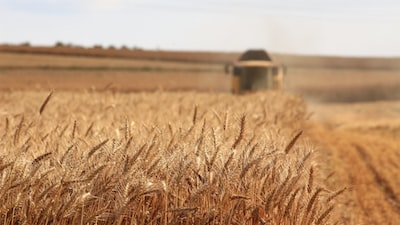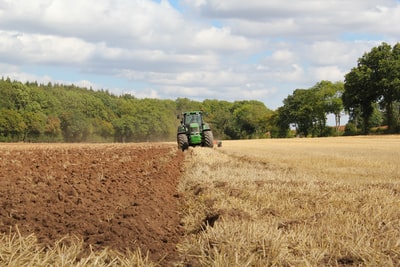
Revolutionizing agriculture. It’s a phrase that carries weight, conjuring up images of vast fields filled with rows of crops, drones buzzing overhead, and machines whirring away.
But what does it really mean? The shocking truth is that sustainable farming practices are changing the game in ways we never imagined. From regenerative agriculture techniques that restore soil health to precision farming methods that maximize crop yields, the agricultural industry is undergoing a transformation like never before.
With the looming threat of climate change and dwindling natural resources, sustainable farming practices are not just a buzzword – they’re a necessity. Farmers are increasingly turning to innovative technologies and holistic approaches to farming that not only benefit the environment but also improve their bottom line.
So, how exactly are sustainable farming practices revolutionizing agriculture? Join us as we delve into the world of sustainable farming and discover the shocking truth behind this agricultural revolution.
Table of Contents
Importance of Sustainable Farming
Sustainable farming focuses on promoting soil health, conserving water, and reducing chemicals. This not only helps the environment but also improves crop productivity. By using methods like crop rotation and integrated pest management, farmers can lessen their reliance on synthetic inputs while promoting biodiversity and soil fertility. Sustainable practices also help combat climate change by storing carbon in the soil and reducing greenhouse gases. As consumers demand organic and local foods, sustainable farming becomes even more important for securing a reliable food supply for future generations.
Environmental Benefits
These new methods focus on long-term environmental health and economic success. By promoting biodiversity, cutting chemical use, and saving resources, sustainable farming aims to create a stronger and more sustainable food system. Using techniques like crop rotation, cover cropping, and integrated pest control, farmers can improve soil fertility, fight climate change, and protect water quality.
Sustainable farming also brings economic benefits, as it enhances soil health and reduces costs for farmers, leading to increased yields and profits. Additionally, sustainable agriculture supports local food systems, boosts food security, and enhances community well-being. As consumers increasingly demand more sustainable goods, the market for such products is growing. This approach to agriculture, which focuses on long-term sustainability, is changing the way we farm and paving the way for a more sustainable future.
Economic Advantages
By minimizing costly chemical inputs and promoting natural ecosystem services, sustainable practices can reduce production expenses. Additionally, sustainable farming methods often increase soil fertility and resilience, resulting in higher crop yields over time. This improved productivity not only boosts farmers’ income but also enhances the overall sustainability of their operations.
Moreover, sustainable agriculture can create new market opportunities for farmers. Consumers are increasingly seeking environmentally friendly and socially responsible products, leading to greater demand for sustainably produced goods. By adopting sustainable practices, farmers can access these niche markets and charge higher prices for their products. This shift towards sustainability not only benefits the economy by supporting local agricultural businesses but also promotes a more resilient and inclusive food system for the future.
Social Impacts
Sustainable farming practices promote healthier food choices and support local communities. Farmers work together to implement eco-friendly techniques and share knowledge, fostering community engagement and empowerment. This encourages social responsibility and ethical practices within the farming industry. Farmers who use sustainable methods prioritize fair labor practices, animal welfare, and community well-being.
This shift towards social consciousness enhances the quality of life for farm workers and nearby residents, creating a more sustainable and equitable society. Sustainable agriculture positively influences social norms and cultivates a culture of respect for both people and the planet by nurturing interconnectedness and shared responsibility.
Future of Agriculture
The popularity of plant-based diets has increased in recent years as more people realize the benefits for the environment and health. Advocates mention the positive effects on reducing greenhouse gas emissions, preserving water resources, and improving overall health. By eating more fruits, vegetables, grains, nuts, and seeds, individuals can support sustainable agriculture and promote a healthier planet.
Plant-based diets also lower the risk of chronic diseases like heart disease, diabetes, and cancer. While switching to a plant-based diet may seem challenging, there are plenty of tasty and nutritious recipes available to make it easier to include more plant-based foods in your daily meals.
articly.ai taginfluencermarketing.ai tag
Embracing Sustainable Farming Practices for a Greener Future with MORZART TRADING
At MORZART TRADING, we understand the importance of sustainable farming practices in today’s rapidly changing world. By promoting environmentally friendly techniques such as crop rotation, natural pest control, and soil conservation, we can help farmers improve soil health, reduce pollution, and conserve water resources.
Not only do these practices benefit the environment, but they also lead to higher yields, improved crop quality, and increased profitability for farmers. By supporting sustainable agriculture, we can ensure a healthier future for generations to come.
Join us at MORZART TRADING in our mission to promote sustainable farming practices and make a positive impact on the world. Let’s work together to create a more sustainable and prosperous agricultural industry for all.
Recap
As we navigate the ever-changing landscape of agriculture and food production, one thing remains clear: sustainable farming practices offer a myriad of benefits that extend far beyond the farm gates. From reducing soil erosion and water pollution to promoting biodiversity and improving soil health, the positive impacts of sustainable agriculture are undeniable.
By prioritizing regenerative techniques such as crop rotation, cover cropping, and organic farming, farmers have the power to not only mitigate the environmental impact of their operations, but also enhance the resilience of their land and communities. It’s time to shift our focus towards a more sustainable and equitable food system that prioritizes the health of our planet and future generations.
Join the movement towards sustainable farming practices and be a part of the solution.






